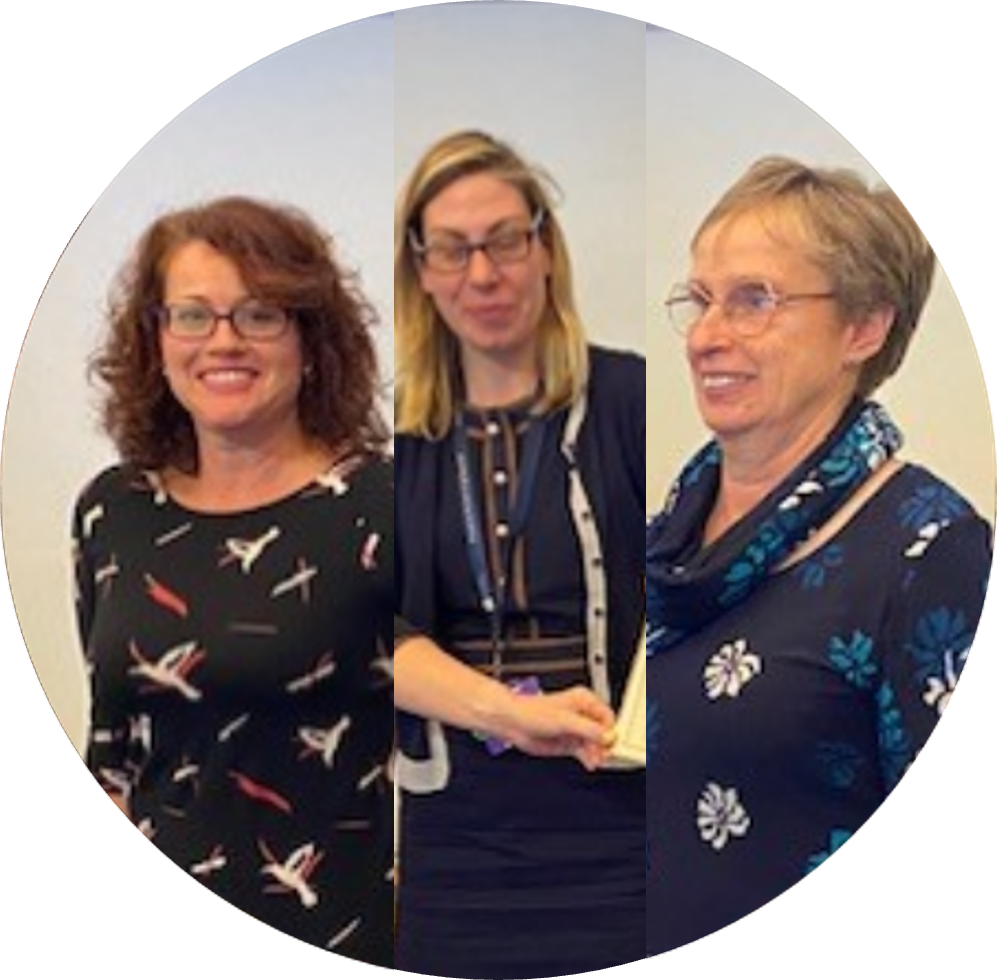5 questions with Sarah Hillman, Rosemary Cragg and Marsha Hughes – highly commended

November 2021.
We spoke to Excellence in Gender Equality Award runners up, Sarah, Rosemary, and Marsha.

What is the initiative?
Menopause and Women’s Health initiative. We developed an emergency sanitary initiative, a menopause café every 2 weeks, and training for managers on menopause. Here’s further information on each of them:
1. Menopause seminar.
In October 2020, we organised an online webinar attended by over 200 members of staff led by Sarah Hillman. The webinar was delivered by national menopause experts and had covered the symptoms of menopause, why it is important for current and future health, and ways of treating and managing symptoms. We had fantastic feedback, with women expressing how enlightening the webinar had been and that they would now have further conversation and reach out for help.
2. Menopause Café.
Following the success of the Menopause seminar the group have now set up the Menopause Café at the Warwick Medical School led by Marsha Hughes. It’s held every 2 weeks for one hour. It’s a drop-in session for men and women to join. It’s a really supportive environment for people who find it difficult to talk to their colleagues or their line managers and especially as many feel isolated during the pandemic.
3. Emergency Sanitary Initiative.
Following the success of the initiatives for the Menopause, we are now also looking at other areas of women’s health and wellbeing. Our latest project being the ‘Emergency Sanitary Initiative’, led by Rosemary Cragg.
What roles do you have within WMS?
Marsha - I am a HR Business Partner at WMS and I play an active role in the Women’s Health and Menopause Athena Swann Group.
Sarah - I am a GP and clinical lecturer in the Unit of academic primary care.
Rosemary - My role is Divisional Support Officer for the BMS Division and I play an active role in the Women’s Health and Menopause Athena Swan Group, Athena Swan Events Sub-Group, and also the Professional Services Sub Group.
How did this initiative first come about?
We are a group that has arisen from dialogue with staff at WMS. As part of an Athena Swan survey and health and wellbeing days in 2018, female members of staff described a need for help around the menopause and later on other women’s health issues. We set up the Women’s Health and Menopause Athena Swan Group and worked on various initiatives. The group continues to grow in size and momentum.
Tell us a little more about who benefits from this initiative?
Marsha - The Menopause Café is run by me every 2 weeks and it’s a drop in virtual café for men and women to join and talk about Menopause. It’s incredibly supportive and gives staff an opportunity to talk in a private space. I am also training all managers and staff on menopause and menopause in the workplace.
Sarah - The sanitary wear initiative helps staff and students on the campus at the Gibbet Hill site. It provides access to free sanitary products in an emergency with a request to replenish stocks from home. The menopause events that have been run have helped many staff.
Do you have any plans for the future?
We have many plans for the future but several are currently in the planning stage. We are, of course, always open to further suggestions!
Workshops for managers and staff at the Medical School on menopause and menopause at work. This will cover symptoms, how to manage symptoms, what line managers need to know, and how line managers can support staff. There's some information on employment law and work placement adjustments. This will include role play which will give line managers experience of how to deal with sensitive and difficult conversations.
Work is being undertaken within the NHS looking at how frontline staff cope with the menopause transition, and finally but most importantly at the medical school we are in a position to educate the next generation of doctors be this lecturing on the MBCHB programme or raising awareness through our sanitary wear project. We endeavour that our aims and standards are reflected in the way we teach and encourage our future doctors to prioritise women’s health, and be the medical feminists that not only our medical school but also our patient population needs them to be.
